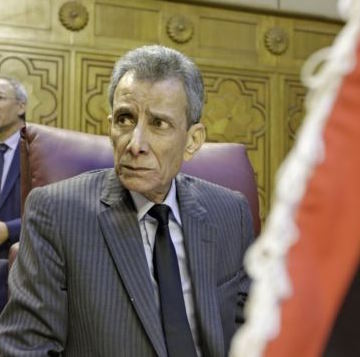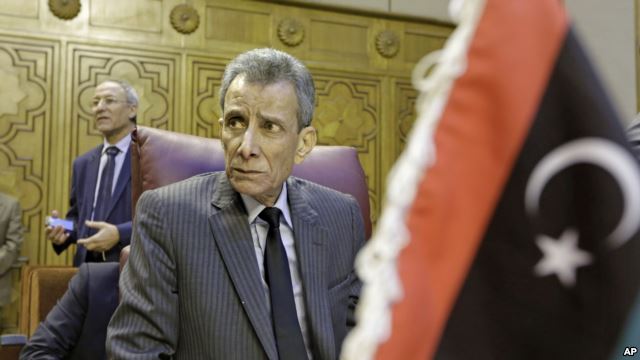By Ali Salem and Libya Herald staff.

Cairo, 5 January 2015.
Libyan Ambassador to the Arab League Ashour Hamad Bourashed called on the . . .[restrict]Arab states to help arm the Libyan Army, saying it needs urgent assistance in order to prevent further bloodshed.
He was speaking at a emergency session of the Arab League in Cairo to discuss the Libyan crisis.
Bourashed also urged Arab states to publish a name-and-shame list of all those who had attacked state institutions, taken action that damaged the country or prevented a resolution of the crisis. He further called for the League to lobby the UN Security Council to implement its resolutions regarding Libya.
The ambassador mentioned the presence of terrorists in the Libya Dawn militias, pointing out the threat this posed for not only Libyan national security but also for the region. Several African nations, most notably Libya’s neighbour, Chad, have recently called for intervention in Libya because of the threat of terrorism spilling over its borders.
The House of Representatives President, Ageela Saleh Gwaider, also attended the session. In a joint press conference held with Arab League Secretary General Nabil Elaraby, Saleh asked the Arab League to take more action to assist the Libyan government during the current crisis. He also said that there must be no foreign intervention in the country. The only military support Libya would seek, if needed, would be from Arab states, he declared.
For its part, the Arab League expressed support for the House of Representatives and the Beida government as the sole legitimate authority in Libya, as well as its solidarity with the Libyan people.
Stressing its commitment to the unity, sovereignty and independence of Libya, it condemned the violent attacks that had happened in the country, particularly on vital facilities such as the oil installations.
It also expressed its support for the UN-led dialogue process and commended the efforts of UN Special Envoy Bernardino Leon, stating that national dialogue was the only way to solve the Libyan crisis. Elaraby, however, in a statement at the end of the meeting, said that “a decisive position must be taken towards all acts of terrorism on Libyan soil.” Those involved in terrorism, he said, had to be excluded from participation in dialogue.
As it is the dialogue process has ground to a halt for the moment. The Arab League meeting came on the same day that the UN-sponsored dialogue between the parties in Libya was supposed to reconvene. It has now been again postponed, this time until further notice.
Expressing its regret at the postponement. the League asked Elaraby to convene a special meeting of Arab foreign ministers as soon as possible to discuss Libya.
[/restrict]






